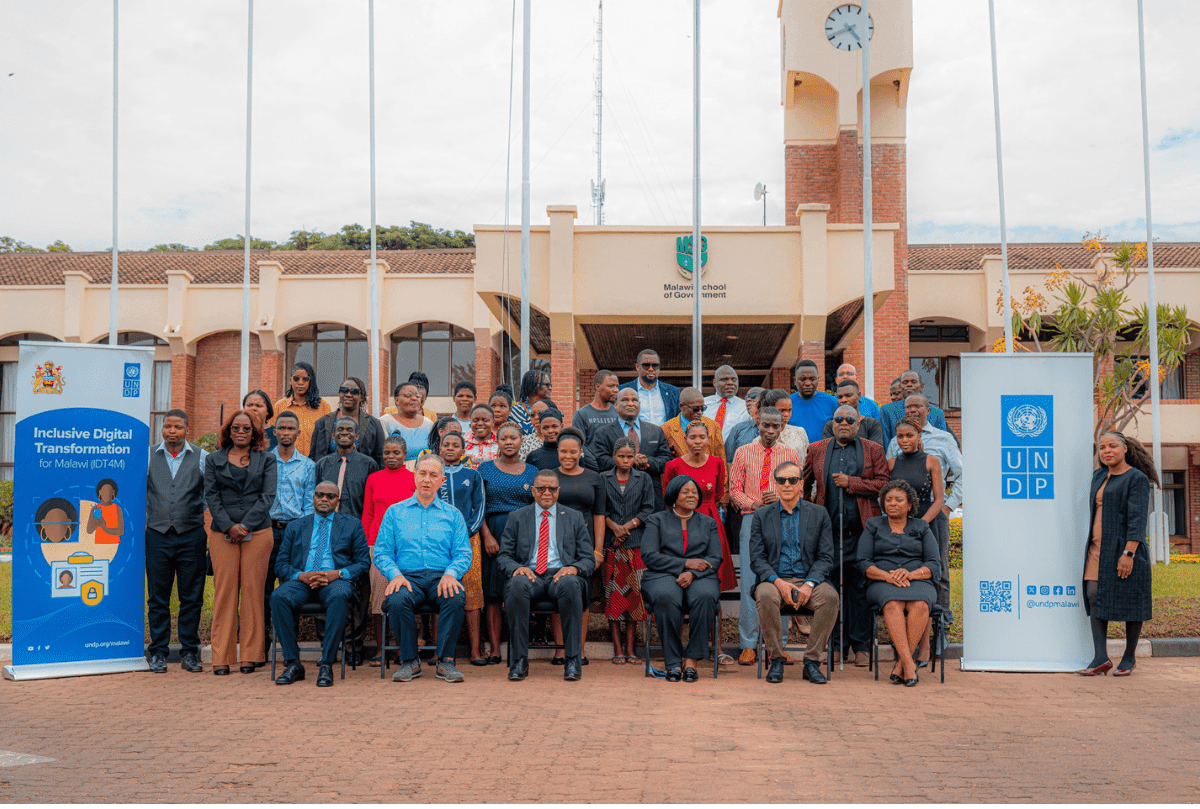We're loading the full news article for you. This includes the article content, images, author information, and related articles.
As Malawi-based Imagine Worldwide wins a major global award for its offline, tablet-based learning solution, its success provides a potential roadmap for overcoming Kenya's persistent educational disparities and the challenges of the Competency-Based Curriculum.

Imagine Worldwide, a non-profit organisation operating in Malawi, has won the inaugural Global EdTech Prize in the Non-Profit category for its innovative tablet-based foundational learning programme. The announcement was made on Sunday, 16 November 2025, at the World Schools Summit in Abu Dhabi, UAE. The prize, founded by T4 Education and supported by Owl Ventures, recognises technology solutions tackling critical challenges in education. Imagine Worldwide was lauded for its model that delivers literacy and numeracy education in environments with no internet connectivity or grid electricity, a persistent challenge across much of sub-Saharan Africa.
The organisation’s solution features solar-powered tablets pre-loaded with adaptive learning software from its partner, onebillion. This software provides a culturally relevant curriculum in local languages, allowing children to learn at their own pace through a digital teacher avatar, supplementing classroom instruction. Each tablet is shared by an average of five students daily. Rigorous testing, including nine randomised controlled trials, has demonstrated significant learning gains, with at least 50% more children meeting reading benchmarks after just 13 months.
The award was decided by educators who voted by secret ballot at the summit, underscoring its relevance to classroom realities. Vikas Pota, founder of T4 Education, stated that the prize was established to help scale innovations addressing the most intractable educational challenges.
Imagine Worldwide's victory holds significant implications for Kenya, where the education sector grapples with a stark digital divide that hampers the implementation of the Competency-Based Curriculum (CBC). The CBC framework heavily encourages the integration of digital literacy and ICT, yet a majority of public schools, particularly in rural and marginalised counties, lack the necessary infrastructure, including electricity, internet access, and digital devices. This disparity creates a growing inequality between learners in well-resourced urban private schools and their counterparts in public institutions.
The Malawi-based NGO’s model directly addresses these core challenges. By utilising solar power and offline software, it bypasses the need for reliable grid electricity and costly internet connectivity, two of the main obstacles to EdTech adoption in rural Kenya. This approach aligns with the needs identified by Kenyan educators and policymakers, who have noted that the lack of such infrastructure makes many EdTech initiatives theoretical rather than practical for a large portion of the student population.
Furthermore, the high cost of implementing CBC, which often requires parents to purchase supplementary materials and digital tools, has placed a significant financial burden on low-income households. A scalable, low-cost solution like Imagine Worldwide's, which reports a recurring maintenance cost of just $3 per child per year after initial setup, presents a viable economic alternative. The organisation works in direct partnership with national governments to integrate its programme into the existing education system, a strategy that could be replicated in Kenya to support the Ministry of Education's goals.
Imagine Worldwide's strategy extends beyond technology distribution. A key element of its success is its deep collaboration with governments to build capacity within the national education system for a country-wide scale-up. In Malawi, the government has formally committed to expanding the programme to every primary school, aiming to reach nearly 3.5 million children annually by 2028. This government partnership ensures long-term sustainability and avoids the common pitfall of pilot projects that fail to scale.
This approach offers a crucial lesson for Kenya. While Kenya has its own EdTech innovators and government initiatives like the DigiSchool Project, challenges in execution, teacher training, and equitable resource distribution persist. The success of the Tusome Early Grade Reading Activity, a USAID-backed programme implemented by the Kenyan government, demonstrated that large-scale, evidence-based interventions with robust teacher support can yield dramatic results nationally. Imagine Worldwide's model provides a contemporary, technology-driven example of how to achieve similar foundational learning improvements in areas that traditional infrastructure cannot yet reach.
As Kenya continues to navigate the complexities of the CBC and strives to provide equitable education for all learners, the success of a neighbouring country's offline, government-integrated EdTech solution is not just an inspiration but a practical blueprint for bridging the nation's own learning divide. The key takeaway is the focus on scalable, sustainable systems that work for the most resource-constrained environments, rather than waiting for universal internet connectivity that may be years away for many communities.
Keep the conversation in one place—threads here stay linked to the story and in the forums.
Sign in to start a discussion
Start a conversation about this story and keep it linked here.
Other hot threads
E-sports and Gaming Community in Kenya
Active 9 months ago
The Role of Technology in Modern Agriculture (AgriTech)
Active 9 months ago
Popular Recreational Activities Across Counties
Active 9 months ago
Investing in Youth Sports Development Programs
Active 9 months ago